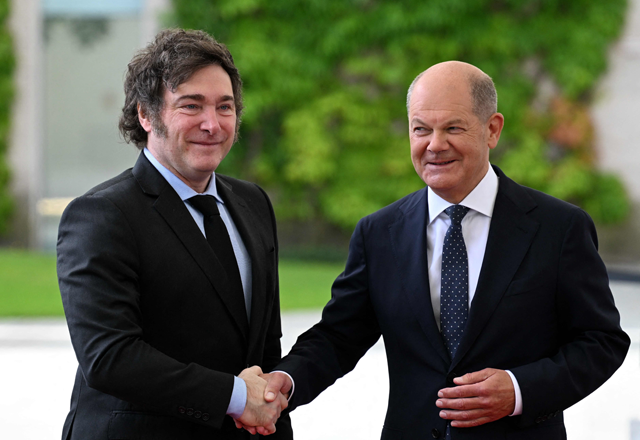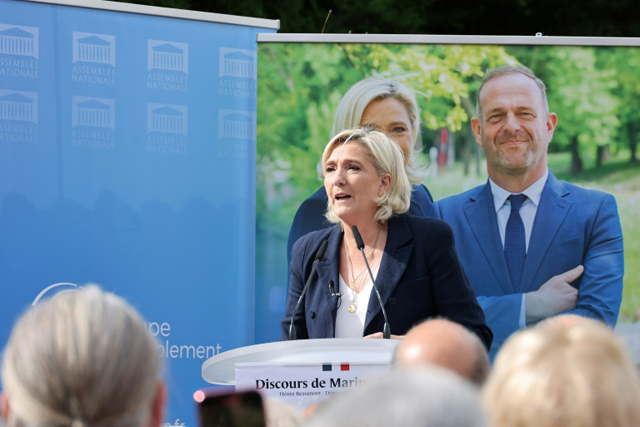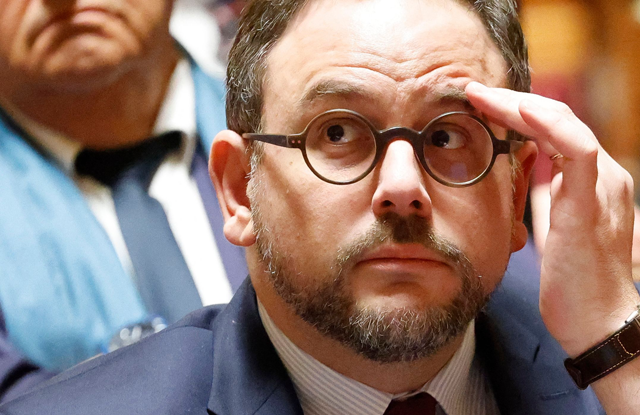You are here
Macron mulls referendums to break political deadlock
By AFP - Aug 24,2023 - Last updated at Aug 24,2023
PARIS — French President Emmanuel Macron told his government on Wednesday he was considering referendums to pass legislation and break the political deadlock caused by the country’s hung parliament, several sources told AFP.
Macron told cabinet members he would hold talks with all rival political leaders next week with a view to drawing up “draft legislation but also referendums”, the sources said on condition of anonymity, without giving further details.
The 45-year-old leader announced in early August that he was planning a “major political initiative” after his summer holidays.
The government has succeeded in negotiating some new laws with the support of opposition parties, but Macron’s flagship pension reform earlier this year had to be rammed through using emergency executive powers — outraging many voters.
Macron, who likes to claim reforming France is part of his political DNA, is desperate to relaunch his second and final term in office, which has been bogged down following his failure to secure a majority in parliamentary elections in June 2022.
Rumours about referendums have swirled before during his six years in power, notably after the so-called “Yellow Vest” anti-government protests in 2018-2019 when the centrist wanted to reduce the number of national lawmakers.
Under France’s fifth republic, which began in 1958, the president is able to call national referendums, but the power has been used only nine times since then.
It was last invoked in 2005 for a referendum on a new European constitution, which the government of then president Jacques Chirac lost in a shock setback.
Lack of support
Talks next week will see Macron convene all the leaders of opposition political parties, including Marine Le Pen from the far-right National Rally — with whom the president has previously refused to negotiate.
The government’s immediate priorities include passing legislation to tackle illegal immigration and crime, while it is also expected to face severe difficulties in securing a majority for its 2023/24 budget.
Faced with a large deficit and pressure from international ratings agencies, the government has promised to take what are likely to be unpopular steps to balance the books including tax rises and cuts to public spending.
“There is no question —- it’s not at all part of the philosophy of the government — to increase taxes for consumers,” Prime Minister Elisabeth Borne said on Wednesday during a radio interview.
The ability to call referendums is one of many tools at the disposal of France’s all-powerful president, but they are considered politically risky because voters and opposition parties can use the opportunity to rebuke the government.
As a last resort, Macron is also able to dissolve parliament and call new elections, but analysts suggest he is unlikely to do this given the weakness and divisions among his allies and the relative strength of Le Pen’s far-right movement.
This year’s widely disliked pension reform saw Macron’s ratings fall to near-record lows, while five days of nation-wide rioting in July shook the country and were seen as being politically helpful for Le Pen and her anti-immigration agenda.
Related Articles
BERLIN — German Chancellor Olaf Scholz said Sunday he was “concerned” about the prospect of a victory for the far-right in France’s upcoming
PARIS — French far-right leader Marine Le Pen on Sunday urged President Emmanuel Macron to hold a referendum on key issues such as immigrati
PARIS — France’s health minister resigned as the government of President Emmanuel Macron on Wednesday sought to quell a party revolt over th


















